What is Replicated?
The Replicated platform lets you install, manage, support, and get insights on your applications in customer environments. With Replicated, you package and update your application using Kubernetes manifests or Helm charts, then securely distribute to any on-premises or cloud-hosted environments, including air gap.
For information about the Replicated features and components, see Replicated Components below.
For an overview of the key use cases for software vendors that Replicated serves, see the Intro to Replicated: 20 Ways We Help video.
Replicated Components
Replicated includes components and features that make it easier for you to manage and deploy applications, and for enterprise users to install and manage their instance of your application.
The following diagram shows the Replicated components as they relate to you as a vendor packaging your application, and the deployment to an existing cluster and a cluster provisioned by the Replicated Kubernetes installer on a VM.
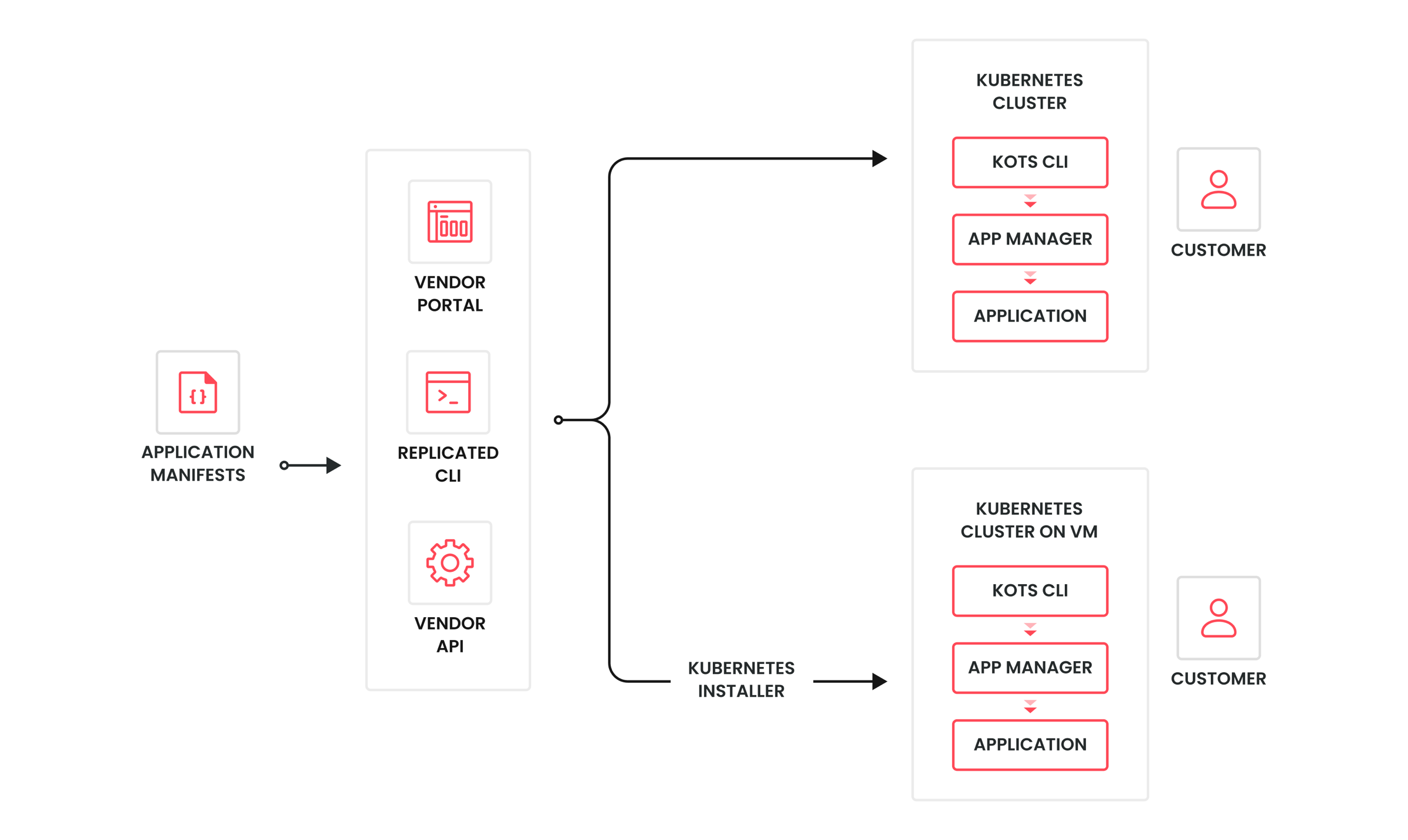
Vendor Portal
The Replicated vendor portal is the web-based user interface that you can use to package and manage applications.
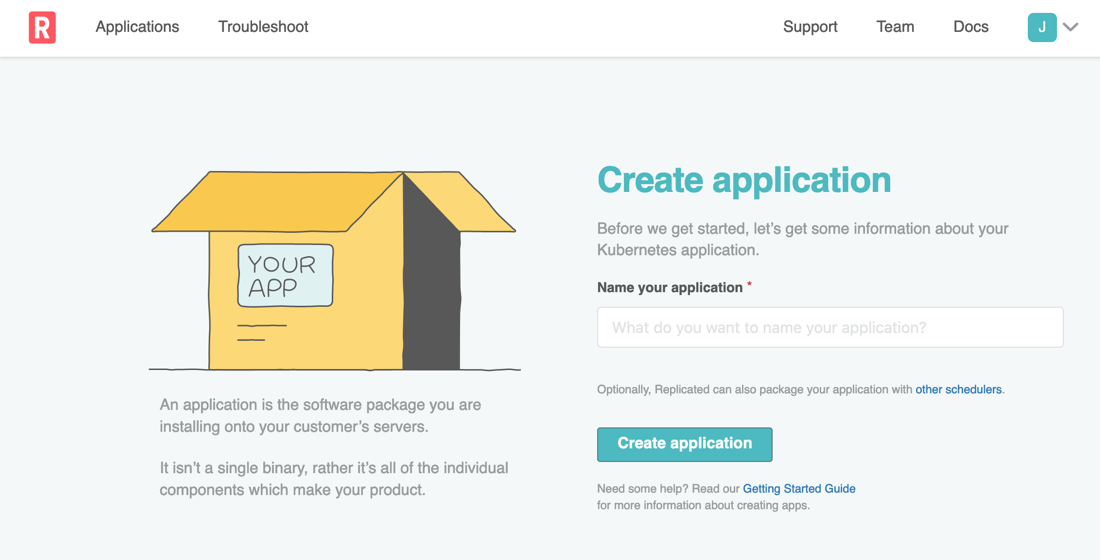
You define Kubernetes manifest files, including application and Replicated custom resource manifests, using the built-in YAML editor and linter (in the Help pane). These files describe how to distribute the application. Alternatively, you can use Helm charts.
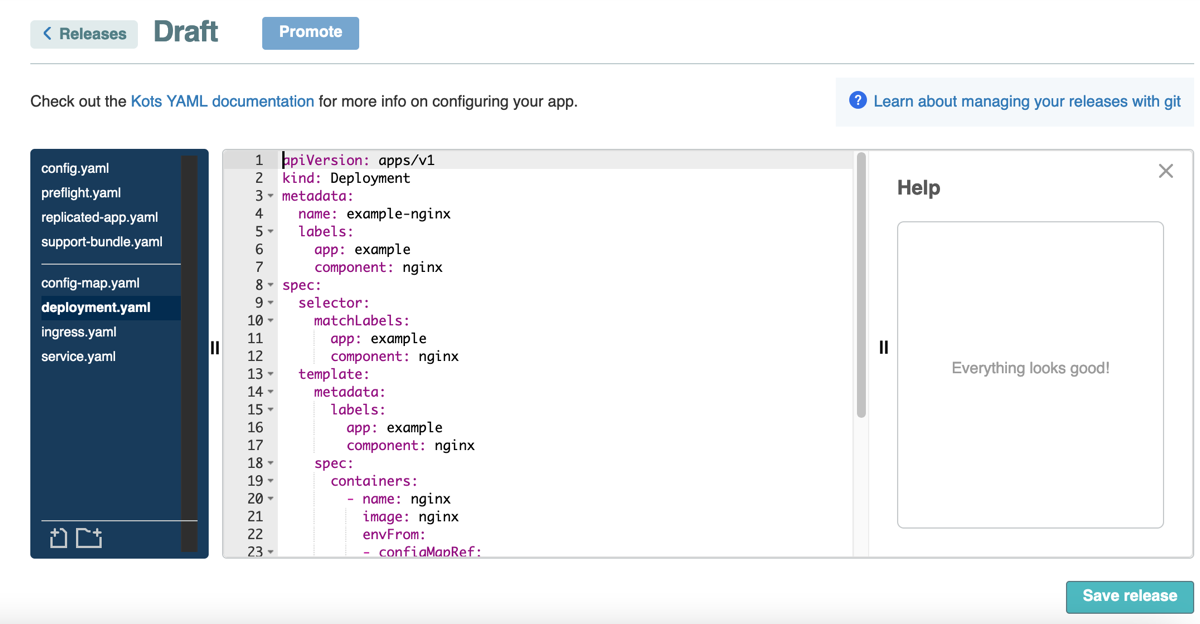
You can also manage other artifacts, such as customer license files, image registries, and release channels.
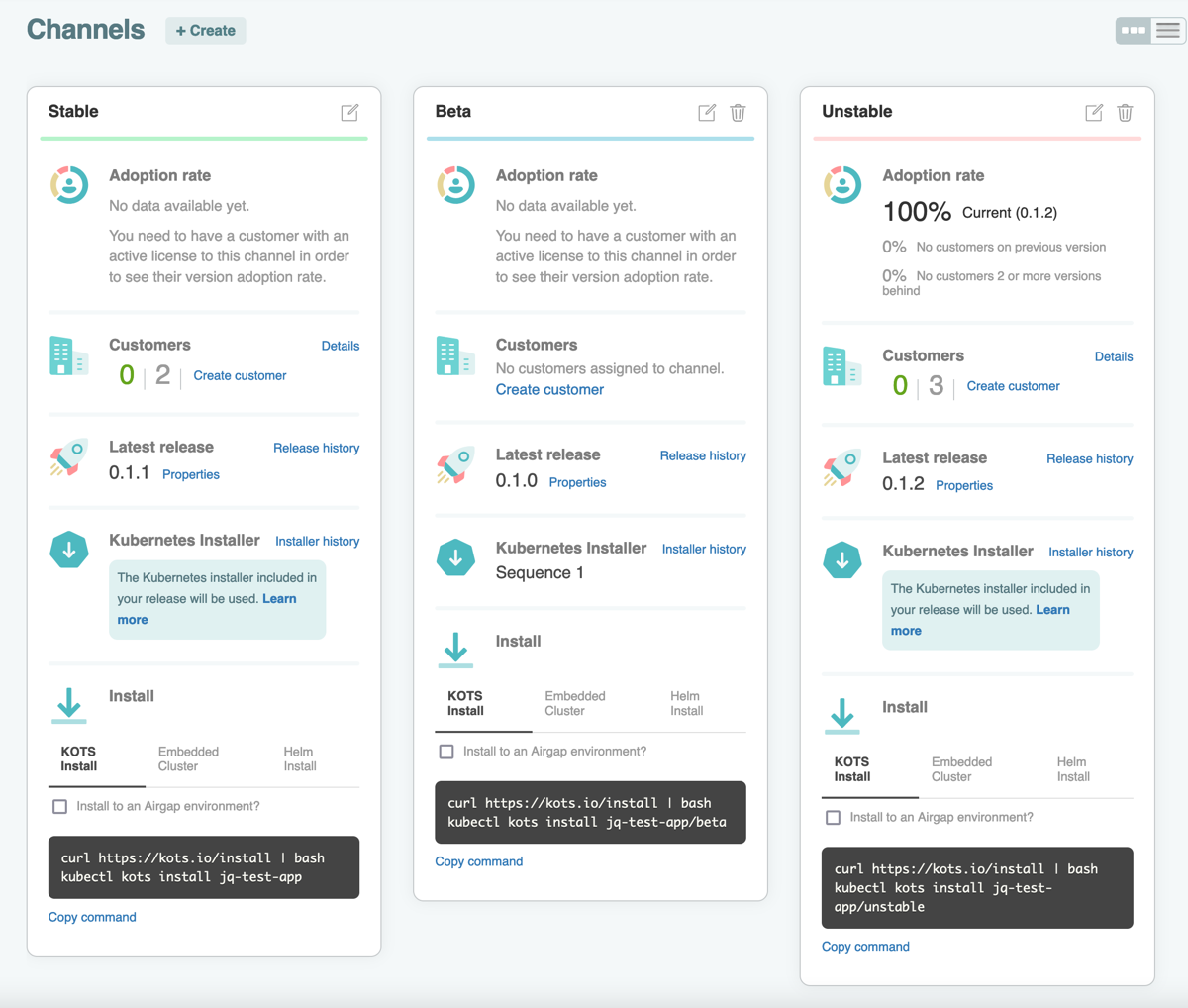
replicated CLI
The replicated command-line interface (CLI) is the CLI for the vendor portal. The replicated CLI can be used to complete tasks programmatically, including all tasks for packaging and managing applications, and managing artifacts such as teams, license files, and so on. For more information, see Installing the replicated CLI.
Vendor API v3
The Vendor API is the API for the vendor portal. This API can be used to complete tasks programmatically, including all tasks for packaging and managing applications, and managing artifacts such as teams, license files, and so on. For more information, see Using the Vendor API V3.
App Manager
The Replicated app manager is the underlying technology that installs and manages applications on a Kubernetes cluster. It provides functionality such as preflight and support bundle analyzers and collectors from the Troubleshoot open source project. For more information about preflight checks and support bundles, see Configuring Preflight Checks and Support Bundles. For more information about the Troubleshoot open source project, see the Troubleshoot repository in GitHub.
The app manager deploys applications securely to the following Kubernetes cluster environments:
- Existing clusters
- Replicated Kubernetes installer provisioned clusters on virtual machines (VMs)
- Air gapped on existing clusters or Kubernetes installer clusters
The Replicated app manager is based on the open source KOTS project, which is maintained by Replicated.
Admin Console
The Replicated admin console is a graphical user interface for the app manager. Enterprise customers can use the admin console to manage, update, configure, monitor, backup and restore, and troubleshoot their application instance.
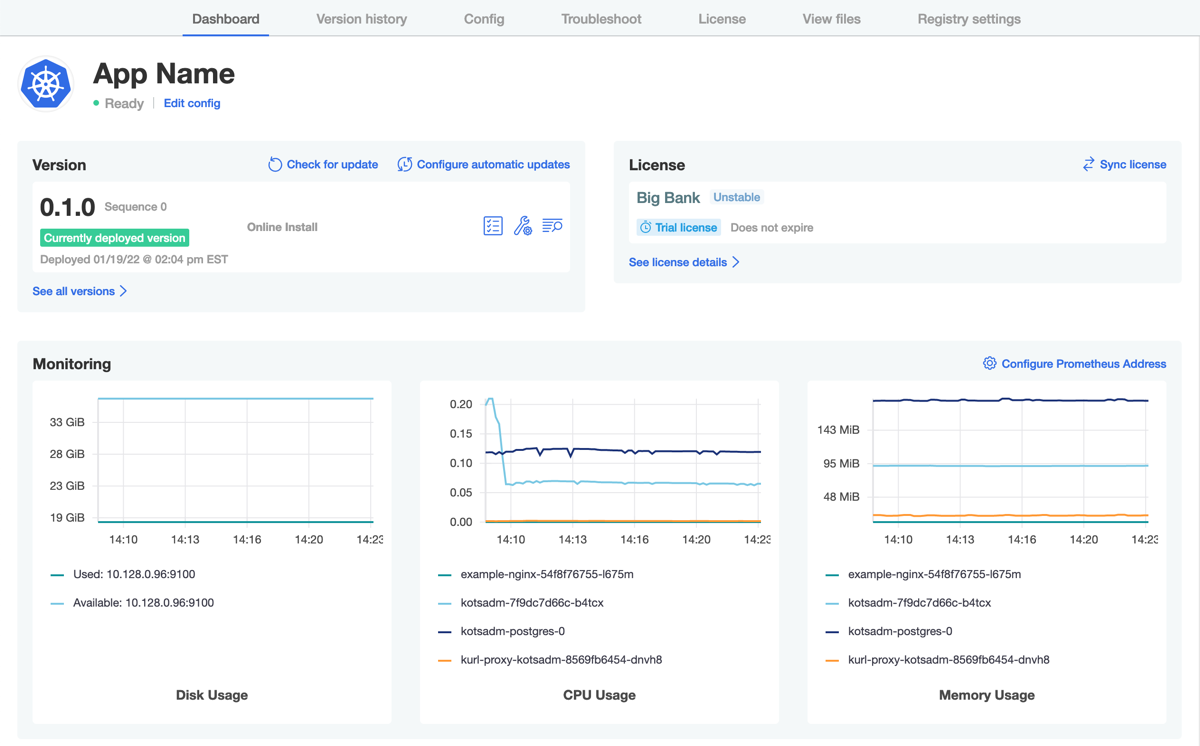
kots CLI
Enterprise customers can install and use the kots command-line interface (CLI) to manage and update the application programmatically. The kots CLI interacts with the app manager and provides an alternative to using the admin console. For more information, see Installing the kots CLI.
Kubernetes Installer
The Replicated Kubernetes installer provisions a cluster on a customer's virtual machine. This is known as a Kubernetes installer cluster or embedded cluster, and it allows customers to install an application without an existing Kubernetes cluster. For more information about configuring a Kubernetes installer cluster, see Creating a Kubernetes Installer. For more information about how enterprise users install with the Kubernetes installer, see About INstalling an Application.
The Kubernetes installer is based on the kURL open source project, which is maintained by Replicated. For more information, see the kURL repository in GitHub.